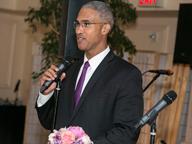Research Center Events
—
Executive Education Short Course: Digital Marketing and Social Media Strategy
—

This Executive Education Short Course program examines best-practices related to the business use of social media and digital marketing. While there will be sufficient attention given to top level strategy used by companies adopting social media and digital marketing, the course will also focus on digital analytics oriented tools: how to make organizations more intelligent in how they conduct business in the digital age.
Research Center Events
—

This Executive Education Short Course program examines best-practices related to the business use of social media and digital marketing. While there will be sufficient attention given to top level strategy used by companies adopting social media and digital marketing, the course will also focus on digital analytics oriented tools: how to make organizations more intelligent in how they conduct business in the digital age.



















